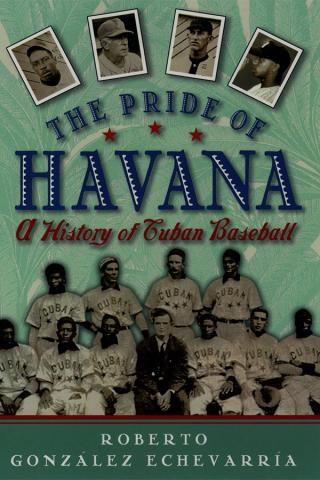
From the first amateur leagues of the 1860s to the exploits of Livan and Orlando “El Duque” Hernandez, here is the definitive history of baseball in Cuba. Roberto Gonzalez Echevarria expertly traces the arc of the game, intertwining its heroes and their stories with the politics, music, dance, and literature of the Cuban people. What emerges is more than a story of balls and strikes, but a richly detailed history of Cuba told from the unique cultural perch of the baseball diamond.
Filling a void created by Cuba’s rejection of bullfighting and Spanish hegemony, baseball quickly became a crucial stitch in the complex social fabric of the island. By the early 1940s Cuba had become major conduit in spreading the game throughout Latin America, and a proving ground for some of the greatest talent in all of baseball, where white major leaguers and Negro League players from the U.S. all competed on the same fields with the cream of Latin talent. Indeed, readers will be introduced to several black ballplayers of Afro-Cuban descent who played in the Major Leagues before Jackie Robinson broke the color barrier once and for all. Often dramatic, and always culturally resonant, Gonzalez Echevarria’s narrative expertly lays open the paradox of fierce Cuban independence from the U.S. with Cuba’s love for our national pastime. It shows how Fidel Castro cannily associated himself with the sport for patriotic p.r.–and reveals that his supposed baseball talent is purely mythical. Based on extensive primary research and a wealth of interviews, the colorful, often dramatic anecdotes and stories in this distinguished book comprise the most comprehensive history of Cuban baseball yet published and ultimately adds a vital lost chapter to the history of baseball in the U.S.